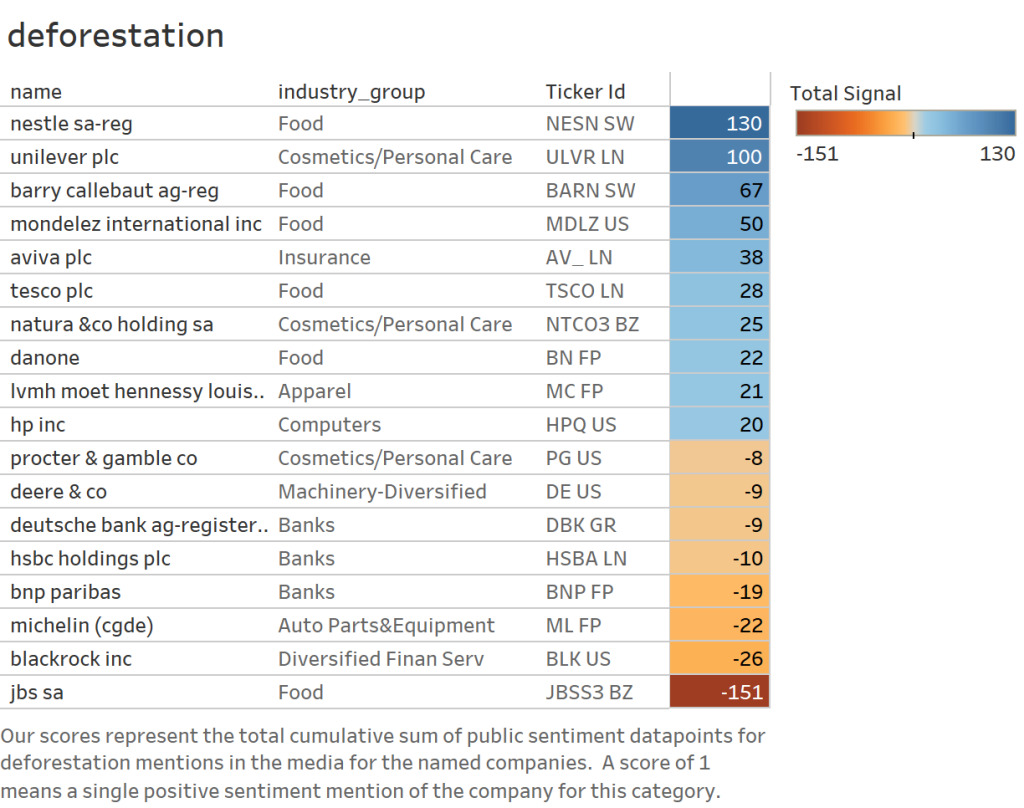A Brazilian food producer was found to have by far the most negative impact on global deforestation rates, according to a global corporate ranking released Wednesday that also awarded negative scores to several major financial institutions for their lending policies.
Permutable AI, a business intelligence platform, released a ranking system based on news sentiment analysis that found Sao Paulo-based JBS, the largest meat processing company in the world, had links with deforestation in the Brazilian Amazon.
Even though deforestation in Brazil’s Amazon has fallen to its lowest level in five years, “the world is moving too slowly to meet pledges to end deforestation by 2030”, Permutable said.
The AI company also found that several major financial corporations such as BlackRock, BNP Paribas, and HSBC had lent to companies that have been associated with deforestation.
French tyre manufacturing company Michelin had also used rubber grown in the deforested areas, it said.
“Furthermore, these companies lack transparency and accountability regarding deforestation issues, putting them under pressure from investors, consumers, and NGOs to take action and address deforestation concerns,” the firm added.
Permutable AI said that corporates were categorised as “best” and “worst” on the basis of their environmental practices, with low-ranked companies facing increased scrutiny for their negative impact on deforestation.
NOT ALL GLOOM
Meanwhile, two Swiss food companies Nestle and Barry Callebaut and the US-based Mondelez International were found to be the top rankers.
These firms along with British multinational Unilever were perceived to be “committed to working towards more sustainable practices,” the platform stressed.
According to the release, these companies made public all information related to the sourcing of their raw materials, which included details on the sourcing of deforestation-free palm oil, cocoa, and other raw materials.
Another UK-based insurance company Aviva also placed high on the list.
These firms also invested in the traceability and certification of their supply chains, while collaborating with the farmers and other stakeholders in the process.
The rankings are based on the basis of comprehensive news analysis, in which Permutable AI evaluates the perceived impact of corporates on deforestation, the firm said.
“Release of these rankings underscores the importance of environmental considerations in evaluating corporate practices,” Wilson Chan, CEO of Permutable AI, said.
“We believe that transparency and awareness can drive positive change, and we encourage companies to reassess and enhance their sustainability efforts.”
By Nikita Pandey – nikita@carbon-pulse.com
*** Click here to sign up to our twice-weekly biodiversity newsletter ***




